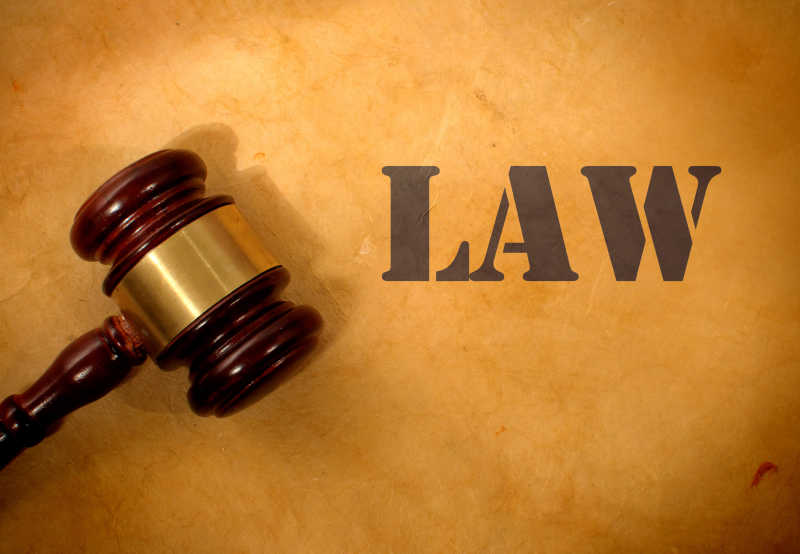He embraced it with ardor, and put it in practice withenergy
To show how universal this strange disposition has been in franced need not only to have copied the whole of the works of mablyRaynal, Rousseau, Fenelon, and to have made long extracts from Bossuetand Montesquieu, but to have given the entire transactions of the sittingsof the Convention. I shall do no such thing, however, but merely referthe reader to themIt is not to be wondered at that this idea should have suited Bonaparteexceedingly well. He embraced it with ardor, and put it in practice withenergy. Playing the part of a chemist, Europe was to him the material forhis experiments.

But this material reacted against him. More than halfundeceived, Bonaparte, at St. Helena, seemed to admit that there is aninitative in every people, and he became less hostile to liberty. Yet thisdid not prevent him from giving this lesson to his son in his will:-"Togoven, is to diffuse morality, education, and well-beingAfter all this, I hardly need show, by fastidious quotations, the opinions of Morelly, Babeuf, Owen, Saint Simon, and Fourier. I shall confinemyself to a few extracts from Louis Blanc's book on the organization ofIn our project, society receives the impulse of powerIn what does the impulse which power gives to soclety consist? In im-osing upon it the project of M. Louis Blanc.On the other hand, society is the human race. The human race, then, isto receive its impulse from M. Louis BlancIt is at liberty to do so or not, it will be said. Of course the human raceat liberty to take advice from anybody, whoever it may be. But this isnot the way in which M. Louis Blanc understands the thing. He meansthat his project should be converted into law, and, consequently, forciblymposed by power.In our project, the State has only to give a legislation to labor, bymeans of which the industrial movement may and ought to be accom-plished in all liberty. It(the State) merely places society on an incline(that is all) that it may descend, when once it is placed there, by the mereforce of things, and by the natural course of the established mechanism.But what is this incline? One indicated by M. Louis Blanc. Does it notlead to an abyss? No, it leads to happiness. Why, then, does not societygo there of itself? Because it does not know what it wants, and it requiresan impulse. What is to give it this impulse? Power. And who is to givethe impulse to power? The inventor of the machine, M. Louis Blanc
We shall never get out of this circle -mankind passive, and a greatman moving it by the intervention of the law. Once on this incline, willsociety enjoy something like liberty? Without a doubt. And what isOnce for all: liberty consists, not only in the right granted, but in thepower giuen to man, to exercise, to develop his faculties under the em-pire of justice, and under the protection of the law.And this is no vain distinction; there is a deep meaning in it, and itsonsequences are not to be estimated. For when once it is admitted thatman, to be truly free, must have the power to exercise and develop hiculties, it follows that every member of society has a claim upon it fosuch instruction as shall enable it to display itself, and for the instruments of labor, without which human activity can find no scope. Nowby whose intervention is society to give to each of its members the re-quisite instruction and the necessary instruments of labor, unless bythat of the state?Thus, liberty is power. In what does this power consist? In possessinginstruction and instruments of labor. Who is to give instruction and instruments of labor? Society, who owes them. By whose intervention issoclety to give instruments of labor to those who do not possess themBy the intervention of the State. From whom is the State to obtain them?It is for the reader to answer this question, and to notice whither allthis tendsOne of the strangest phenomena of our time, and one which will prob-ably be a matter of astonishment to our descendants, is the doctrinewhich is founded upon this triple hypothesis: the radical passiveness ofmankind, -the omnipotence of the law, -the infallibility of the legis-lator: this is the sacred symbol of the party which proclaims itself exclus-It is true that it professes also to be socialSo far as it is democratic, it has an unlimited faith in mankind.So far as it is socal, it places it beneath the mudAre political rights under discussion? Is a legislator to be chosen? Oh,then the people possess science by instinct: they are gifted with aradmirable tact: their will is always right; the general will cannot err Suf-frage cannot be too universal. Nobody is under any responsibility to so-ciety. The will and the capacity to choose well are taken for granted. Canthe people be mistaken? Are we not living in an age of enlightenment?What! are the people to be always kept in leading strings? Have they notacquired their rights at the cost of effort and sacrifice? Have they not given sufficient proof of intelligence and wisdom? Are they not arrived atmaturity? Are they not in a state to judge for themselves? Do they nothow their own interest? Is there a man or a class who would dare toclaim the right of putting himself in the place of the people, of decidingand of acting for them? No, no; the people would be free, and they shallbe so, They wish to conduct their own affairs, and they shall do so




Post a Comment